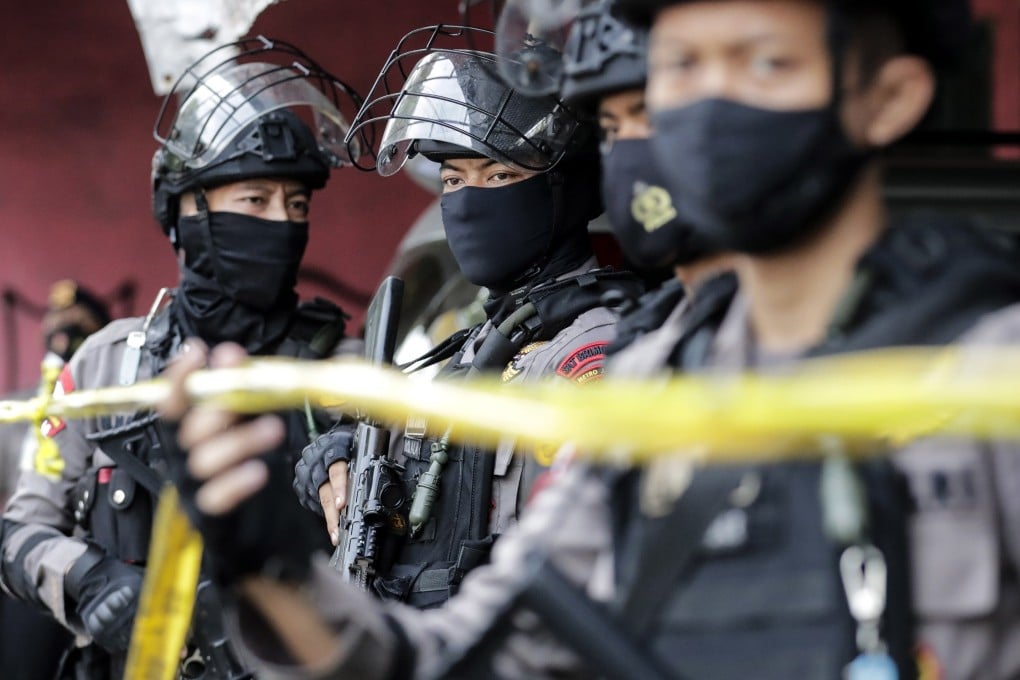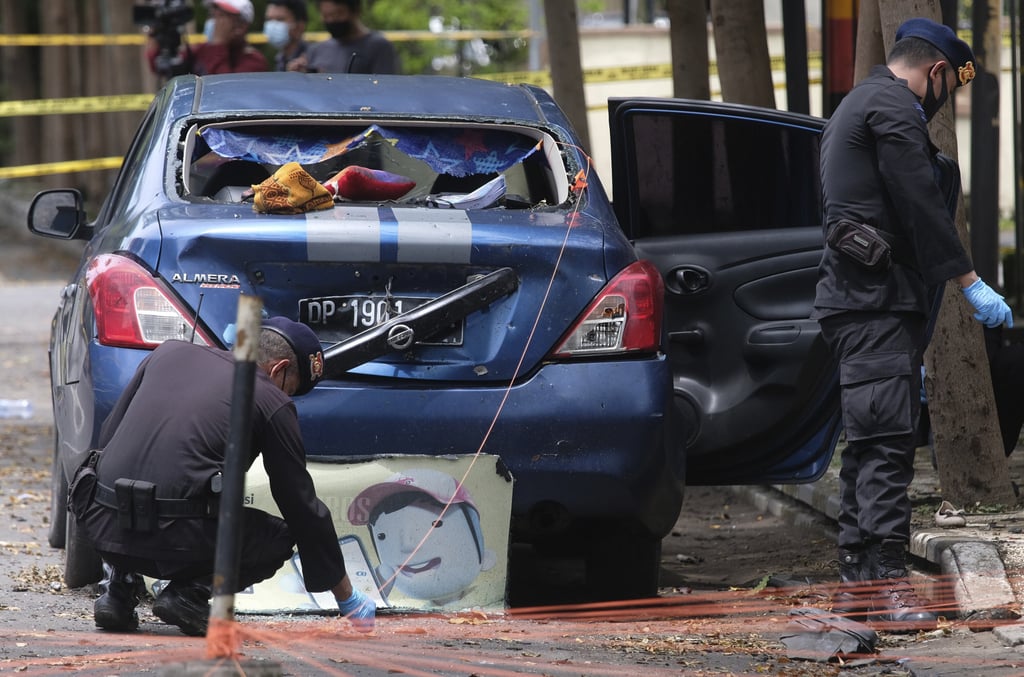Isis supporters in Indonesia, Malaysia call for more violence after attack during holy period for Muslims and Christians
- The suicide bombing by newlyweds in Makassar city took place on Palm Sunday, a week before Easter, and in the run-up to the month of Ramadan
- Police have arrested eight suspects with links to the couple, and found a cache of explosives and bomb-making materials in Jakarta

The Indonesian couple – who were married six months ago – were the only casualties in the Makassar city bombing that left 20 people wounded and was attributed to Jamaah Ansharut Daulah (JAD), the largest Isis-linked group in the country.
Police said the couple, who were both members of the group, were killed instantly after they rode a motorcycle into the church compound and detonated a bomb packed with nails after being challenged by security. The authorities added that the husband had left a suicide note to say he was ready to die a martyr, while local media on Tuesday reported that the woman was four months pregnant.
Indonesia, the world’s most populous Muslim nation, periodically suffers from terror attacks. There is a tradition of such attacks in the run-up to Ramadan, which begins in mid-April this year; these include several attacks in 2000, the Surabaya church bombings in 2018, and an attempted suicide bombing at a Jakarta police station in 2019.
JAD, which has thousands of sympathisers and supporters in the country, has been behind all major terror attacks in Indonesia over the past five years – with police personnel and non-Muslims as the main targets.

“Police are targeted as they are considered to be an obstacle [to the cause], while non-Muslims are targeted because militants are convinced that is an order from God,” said Nasir Abas, the former leader of al-Qaeda’s Southeast Asia branch, Jemaah Islamiah (JI).